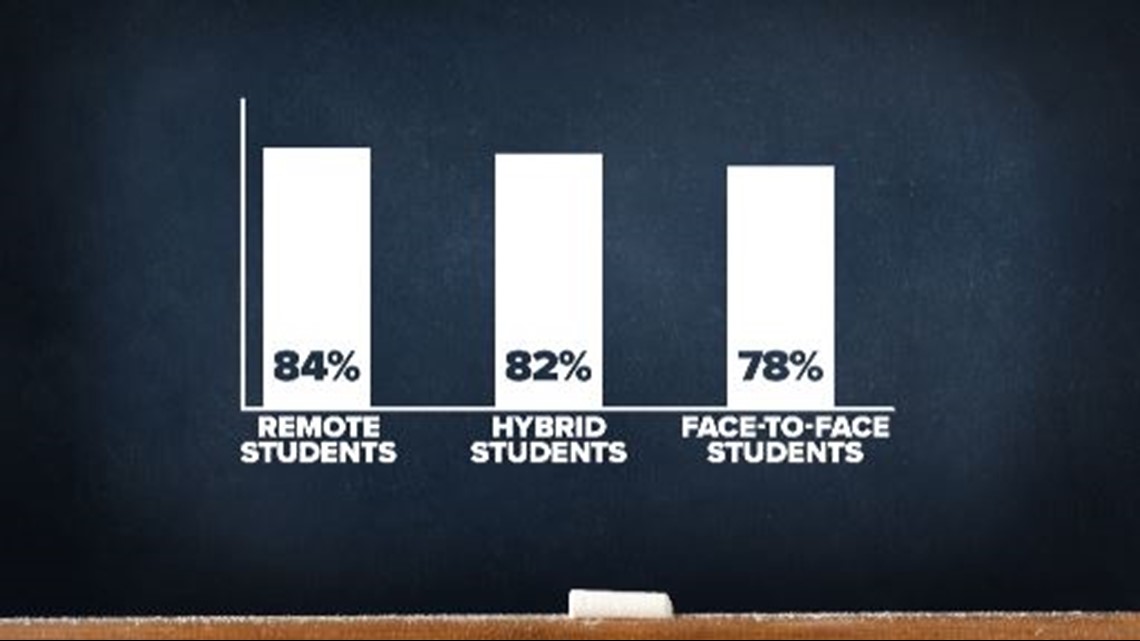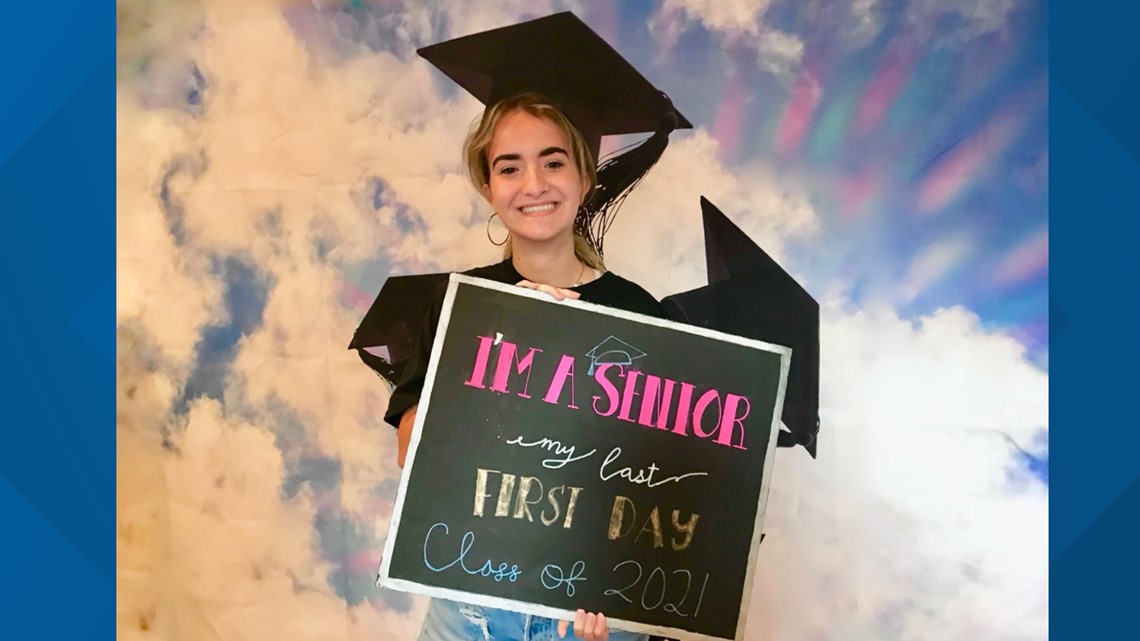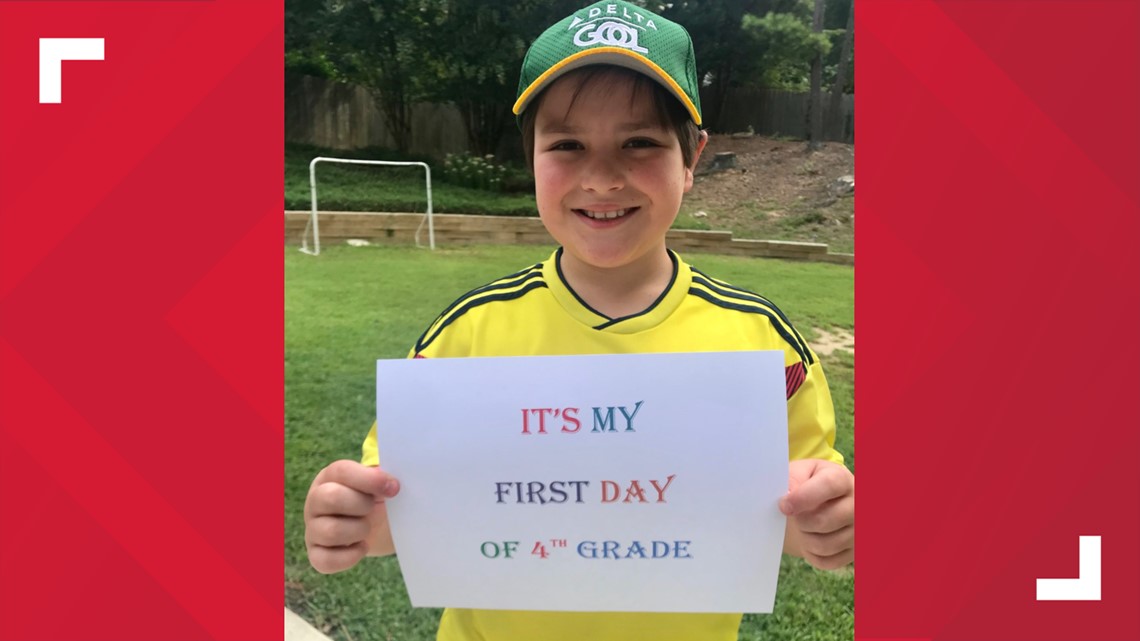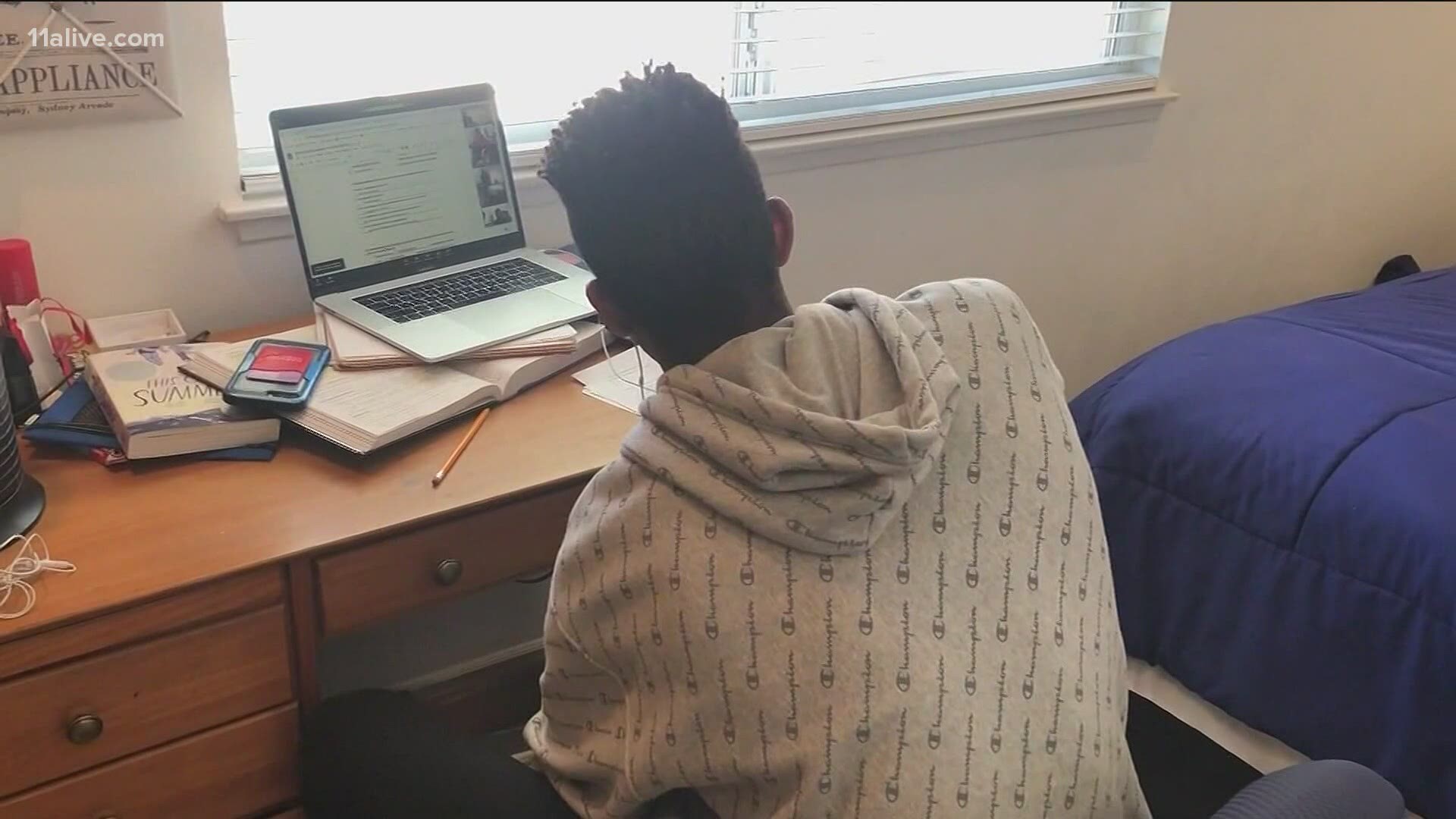ATLANTA — It's no surprise the pandemic has greatly impacted students all across the nation. But a new study from NBC News and Challenge Success is one of the first to examine the differences between students who are learning virtually and those in-person.
The 10,000 student-survey found that those learning remotely are working harder and sleeping less.
It shows students who are learning remotely are doing homework an average of 90 more minutes per week: about 30 more minutes on the weekends and 70 more minutes during the week.
In addition, the survey shows that 84% of remote students reported exhaustion, headaches, insomnia or other stress-related troubles, compared to 82% learning in a hybrid model and 78% of those face-to-face.


11Alive interviewed three Georgia students to get their take on these findings.
First, is senior Rosemar Olivieri, whose laptop has been her classroom for 11 months now.
"It's very stressful, and the teacher is not there to help you," the Pope High School student shared. "Sometimes I get more tired, because I'm sitting on the computer listening to the teacher eight hours a day."


Then there's 8th grader Jake Sommer who has been attending class face-to-face ever since her school allowed it.
"Online school was a struggle," the 14-year-old explained. "Lots of schoolwork starts to pile up because it's so easy to miss class."
He said attending in-person classes was easier for him because learning from home brought a lot of distractions.
"Throughout all of my years in school, I've learned about not to stare at technology for that long, and to not be on technology for more than a couple of hours a day, and right now we have to stare at a screen eight hours a day? I think that's kind of funny," he added.


Fourth grader Julio Rivera Frias agrees with him. He first opted for virtual learning and realized he was more productive in school.
"Actually, it was my parents' decision, because they noticed I wasn't doing well in school," he explained. "The teacher was paying more attention to the face-to-face people, and we also were having computer problems, so sometimes I couldn't log on to my Zoom."


Three Georgia students with three different learning paths finding common ground.
The CDC has said 40% of young adults are struggling with mental health issues connected with the pandemic. Now, educators say they're worried about the long-term impact stress will have on children.
To read more on this study, click here.

